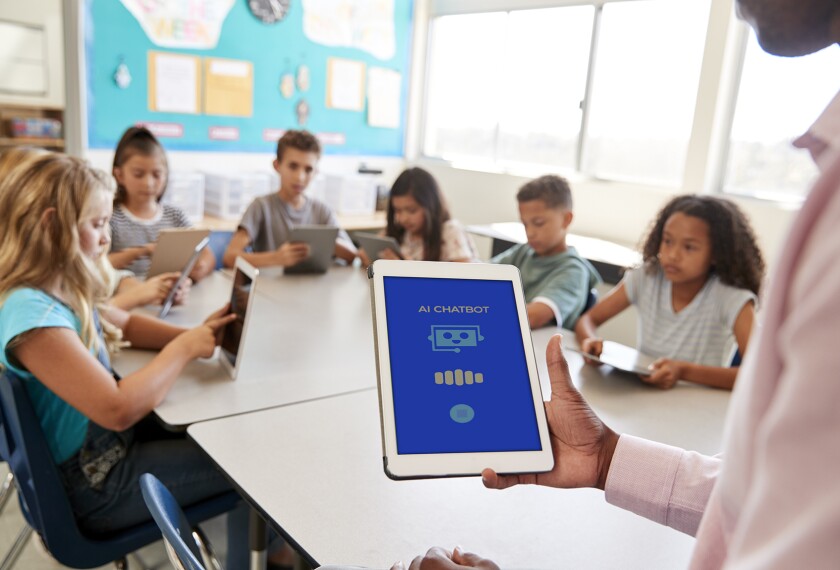Lessons in artificial intelligence literacy shouldn’t be confined to just high school computer science classes. They should be spread across all content areas and grade levels, a panel of educators and experts said during an Education Week webinar earlier this month.
“We absolutely do think that this needs to be embedded throughout the curriculum,” said Pati Ruiz, the senior director of edtech and emerging technologies for Digital Promise, a nonprofit organization that works on equity and technology issues in schools.
Teachers don’t necessarily need to use AI-powered tools—or any kind of digital devices—to help students better understand how AI works, she added.
Schools can “approach AI literacy practices in a way that makes sense for younger students,” Ruiz said. “Many, many examples include not using any technology at all, but building off of the computational thinking skills that we’ve already been teaching students for a while.”
For instance, students can learn about data collection and analysis, or delve into data privacy and ownership, without using a device, Ruiz explained.
What’s more, because generative AI tools so often spit out false information, students must also understand how to scrutinize the responses they receive—and how to spot “deepfake” videos and photos and other misinformation created or amplified by AI, added Kip Glazer, the principal of Mountain View High School in California, who also was a featured guest for the webinar.
Students need “critical thinking skills to be able to evaluate information,” Glazer said. That needs to happen across a range of “different contexts so that our students can truly understand [whether] what AI is generating is correct or incorrect.”
Teaching students how to compare real images with fake ones
Districts that are still puzzling through how—and whether—they want students using generative AI tools like ChatGPT at school can still teach AI literacy, said Vera Cubero, a digital teaching and learning consultant for the North Carolina Department of Education.
For instance, students can start comparing real images to fake ones generated by AI at an early age, she said.
By middle school, they can start using free, educational versions of design tools like Canva and Adobe Express to “actually create images and manipulate them with AI,” she said. Through that experience, “they’ll begin to internalize a lot more how easily [that] can be done and how believable the results can be.”
And by high school, students are ready to talk about how “AI is being used by bad actors, like the deepfake videos of Taylor Swift,” Cubero said. “I think our high school students are talking about them already whether we’re talking about them in school or not.”
None of those activities require districts to give students access to ChatGPT at school, Cubero emphasized. Experts recommend students can learn the most about AI tools if they use them with teachers’ guidance, but not all districts are comfortable with that at this point.
“Students can and should be learning about AI, even if they’re not ready, or you’re not ready, for them to learn with AI,” she said.
To view the full webinar, register here.






